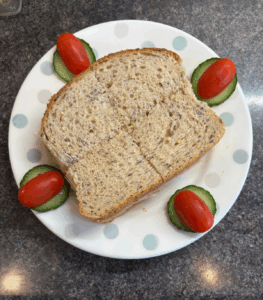Caring for someone living with dementia can be deeply rewarding, but it also comes with unique challenges. One of the more difficult behaviours families and carers often notice is something called sundowning in dementia. This blog explores what sundowning is, why it happens, and how Braeburn Care supports customers across Kent and East Sussex with compassionate, structured home care that makes a difference.
What Is Sundowning?
Sundowning refers to a set of symptoms – such as confusion, agitation, restlessness, or distress – that tend to worsen in the late afternoon or evening. It’s particularly common among people with Alzheimer’s disease and other types of dementia, although not everyone experiences it the same way.
During sundowning episodes, a person might:
- Become more confused or anxious
- Pace or wander
- Struggle with communication
- Feel upset, fearful, or suspicious
- Experience difficulty falling or staying asleep
Understanding sundowning in dementia helps families respond with empathy and more effective care strategies.
Why Does Sundowning Happen?
While there isn’t a single known cause, experts believe a combination of physical, neurological, and environmental factors contribute to sundowning symptoms:
- Disruption to the body’s circadian rhythm (internal body clock)
- Fatigue after a full day of stimulation
- Reduced light and more shadows, which can cause confusion or fear
- Hunger, thirst, discomfort, or pain
- Medication side effects
- Sensory changes or impairments that impact perception
By identifying triggers and understanding what may contribute to sundowning, we can take a more tailored approach to dementia care at home.
How to Manage Sundowning Symptoms
Supporting someone through sundowning takes calmness, consistency, and a person-centred approach. Here are some proven strategies our team uses to help reduce evening anxiety:
- Maintain a familiar routine – Predictable days reduce confusion and build emotional security.
- Maximise exposure to daylight – Natural light during the day helps regulate sleep-wake cycles.
- Limit stimulants – Reduce caffeine and sugar intake in the afternoon and evening.
- Create a calming environment – Use soft lighting and minimise noise, clutter, and visual confusion.
- Offer gentle, enjoyable activities – Listening to music, reading, puzzles, or light conversation can help soothe restlessness.
- Use reassurance, not correction – Validate feelings, avoid confrontation, and use a soft, supportive tone.
- Ensure safety – Particularly important if the person is prone to pacing or wandering.
Our Role as Home Care Professionals
At Braeburn Care, we understand how unsettling sundowning can be for families. That’s why we offer tailored dementia care in Tunbridge Wells, Tonbridge, Sevenoaks, Crowborough and surrounding areas, designed to meet both emotional and practical needs.
Our Care Professionals:
- Observe and report changes in mood or behaviour
- Promote daily routines that minimise sundowning symptoms
- Encourage healthy sleep and nutrition habits
- Provide calming companionship and meaningful engagement
- Support families with practical advice, reassurance, and regular communication
With the right support, it is possible to reduce the distress associated with sundowning in dementia and help individuals feel safer and more secure.
Working in Partnership with Families
We believe that the best dementia care is collaborative. Our teams work hand-in-hand with families to:
- Understand the individual’s personality, history, and preferences
- Monitor triggers and adapt the care plan accordingly
- Introduce strategies gently to avoid overwhelming the individual
- Maintain dignity, compassion, and respect at all times
Whether support is needed once a day or several times throughout the evening, our goal is always the same: to help individuals feel calm, safe, and valued.
FAQs: Sundowning in Dementia
- What is sundowning in dementia?
Sundowning in dementia refers to a pattern of increased confusion, agitation, or anxiety that typically occurs in the late afternoon or evening. It’s most common in Alzheimer’s and other types of dementia. - How can Braeburn Care support someone experiencing sundowning in Tunbridge Wells?
Braeburn Care offers bespoke home care packages in Tunbridge Wells, Tonbridge, Sevenoaks, Crowborough and surrounding areas across Kent. Our trained Care Professionals provide structure, reassurance, and emotional support during vulnerable hours to help reduce sundowning symptoms. - Is there a cure for sundowning?
There is no cure, but symptoms can often be managed through routine, light exposure, reducing stimulation, and creating calm, predictable environments. Braeburn Care supports families in applying these strategies effectively. - When should I seek professional help for sundowning behaviour?
If sundowning is causing significant distress, sleep disruption, or safety risks, it’s time to seek professional advice. Braeburn Care can work alongside GPs and dementia specialists to deliver supportive care at home. - Does Braeburn Care offer evening or overnight care in West Kent?
Yes. We provide flexible evening and overnight care options throughout West Kent, including Tunbridge Wells, Tonbridge, Sevenoaks and surrounding villages. These services can be particularly valuable for those managing sundowning-related anxiety or confusion. - Can home care help reduce dementia-related behaviours like wandering or aggression?
Absolutely. Consistent routines, familiarity with carers, and tailored support can help prevent triggers that lead to wandering or distress. Braeburn Care focuses on preventative and person-centred strategies. - Where can I learn more about home care for dementia in Kent?
Visit www.braeburncare.co.uk or call 01892 577680 to speak with our friendly team about dementia care and sundowning support.













